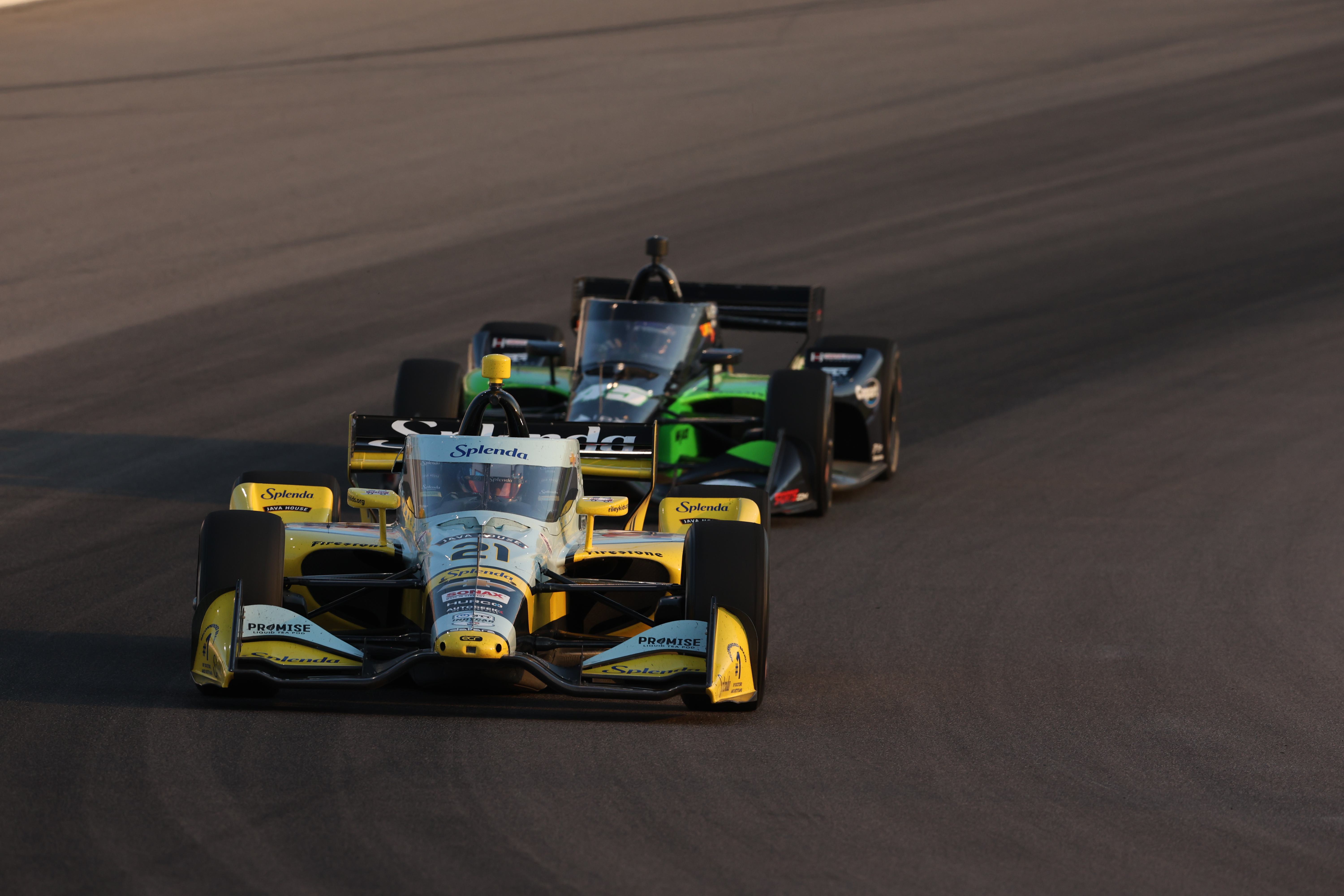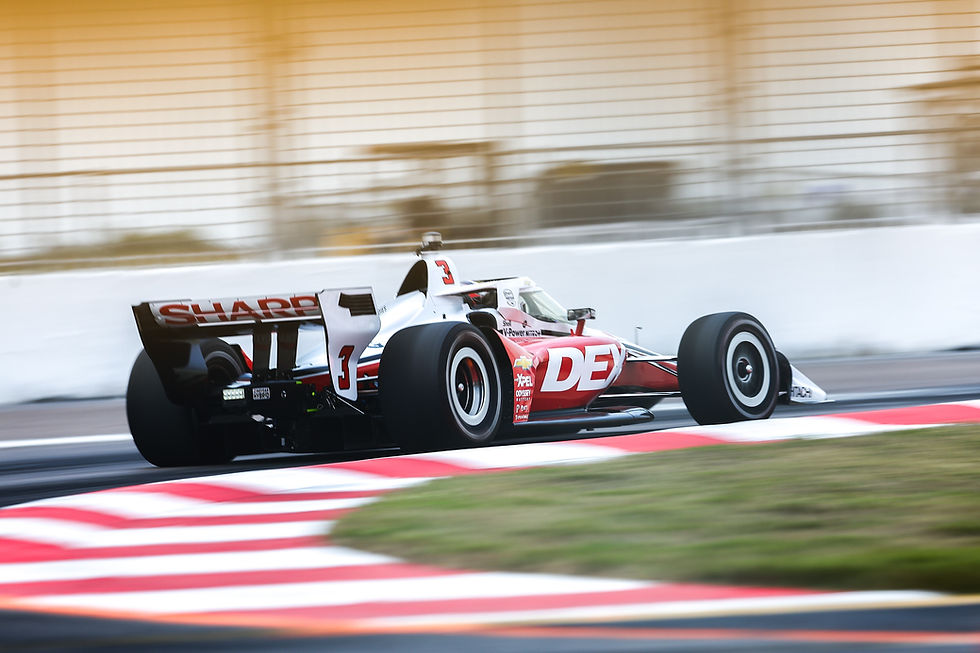Mind over machines: why mental health is the real race in motorsports
- Zoha Wyne

- Jun 30, 2025
- 5 min read
Written by Zoha Wyne, Edited by Charlotte Mui

Formula One drivers barrel down straights at over 200 mph (322 kph), make split-second decisions while enduring 5g forces, and live in the full glare of global attention. But what happens when the pressure doesn’t just stay on the track? Behind every overtake, every pit stop and every pole position, there's a mind at work, and sometimes, at war with itself.
Mental health is no longer the elephant in the paddock. In a sport built on precision, reaction time, and resilience, mental well-being is as critical as physical fitness.
June marks Men's Mental Health Awareness Month, but in motorsport, the conversation extends beyond gender because stress, burnout, and anxiety don’t discriminate.
From cockpit to control room: the human engine behind racing
Formula One isn’t just about the twenty drivers on the grid. It’s about the hundreds of engineers, strategists, pit crew members, and hospitality staff working behind the scenes under constant pressure.
These professionals clock in 100-hour work weeks, travel across continents on tight schedules, and are often expected to perform at their peak, even under unpredictable conditions.

A 2021 study by Motorsport UK revealed that nearly 70% of motorsport personnel experienced symptoms of burnout during a season.
Constant travel, jet lag, and sleep deprivation are common contributors. And yet, the prevailing attitude has long been to "push through it" until recent years.
As Mercedes Team Principal Toto Wolff put it: “Fundamentally, a team is people. My single most important task is to provide a framework so they can function best. I maximise performance by providing an environment where people feel motivated, energised and passionate.”
The helmet hides more than hair: drivers on the mental grid
When Lando Norris burst into Formula One with McLaren, fans saw a cheeky and confident rookie. What many didn’t notice was a young man battling anxiety and self-doubt. Norris later revealed he struggled deeply during his debut season, often questioning if he was good enough for the sport.
“There were times I didn’t want to talk to anyone,” he said in an interview. “It took a toll on me. I was lonely and unsure.”

He has since become a vocal advocate for mental health, partnering with the charity Mind and encouraging open discussions within the F1 paddock. In 2021, he co-founded the content platform Quadrant, blending gaming with mental health awareness and using his voice to normalise emotional vulnerability.
Even during the 2025 Bahrain Grand Prix, team reports confirmed Norris employed mindfulness techniques to stay composed under pressure.
But Norris isn’t alone. Former world champion Sebastian Vettel and seasoned veteran Daniel Ricciardo have both spoken about the emotional weight of high-stakes racing.
Vettel has opened up about battling imposter syndrome in the early years of his career, while Ricciardo has admitted that the relentless pressure to perform can ultimately lead to mental fatigue.
Rising voices, new values

Even rising talents are speaking out. F1 Academy’s inaugural champion Marta García is one of the most vocal new-generation drivers on the subject of mental wellbeing. “Support networks help me thrive,” she said, adding that “working with psychologists has taught me how to cope with pressure and find balance.”
García, who made history in 2023 by winning the first-ever F1 Academy title, has continued to use her platform to encourage young drivers, particularly women in motorsport, to pursue their dreams with tenacity and self-compassion. “Work hard, never give up, and follow your dreams,” she said in a recent feature. “Even when it’s tough, keep going. It’s worth it.”
Beyond bravado: redefining strength in elite motorsport
There’s long been a culture in motorsport of equating toughness with silence and the idea that a “real racer” doesn’t flinch. But modern-day Formula One is slowly shifting gears.
Teams now employ sports psychologists, offer mindfulness sessions, and encourage downtime as part of performance strategy. Michael Italiano, former performance coach of Ricciardo, always emphasised that it’s not just about gym reps — it’s about headspace. “A confident driver is a faster driver,” summed up his holistic approach to performance.
After Ricciardo’s F1 farewell, Italiano briefly worked with Yuki Tsunoda, before switching gears entirely joining the Indian Premier League (IPL) as a performance consultant
Ferrari, Red Bull Racing and Mercedes have all implemented confidential mental health support systems, while the FIA has ramped up mental health awareness campaigns across multiple motorsport disciplines.
Self-care is not a pit stop — it’s a race strategy

In 2024, Formula One introduced mandatory wellness training modules for drivers entering the FIA Formula 2 and Formula 3 feeder series. These include seminars on emotional regulation, stress management, and the importance of peer support.
Meanwhile, initiatives like Racing Minds, a driver-led peer support group, is gaining traction among young karting talent and junior formula racers. It’s a clear sign that the next generation isn’t just concerned with tyre degradation or chassis upgrades, but are also seeking mental clarity.
Mental health lessons from Formula One
Formula One is a masterclass in performance under pressure and some of the psychological strategies used by drivers hold value far beyond the paddock. Three such strategies are listed below.

Visualisation sharpens focus: Before wheels touch the tarmac, drivers mentally rehearse every turn, braking point and gear shift. It’s more than routine; it's a way to build confidence and stay composed under pressure.
Routine tames unpredictability: Structure is sacred when your job depends on split-second decisions. From strict sleep schedules to nutrition and recovery, habits anchor drivers in a life ruled by chaos.
Emotional regulation is a performance tool: At 300kph, there’s no time to dwell on mistakes. Drivers are trained to reset their emotions in milliseconds—a skill that anyone under pressure can learn to harness.
As George Russell put it: “I’ve come to realise that looking after myself mentally is just as important as going to the gym. You can’t perform at your best if your mind’s not in the right place.”
Final lap: tuning into the noise we don’t see
Motorsport is a game of margins and mental health can make all the difference. Whether it’s Lando Norris staring down his first season or a trackside engineer racing against the clock, emotional well-being matters. It’s not a distraction from performance. It is performance.
The noise of the engines may drown out the inner voice, but the roar of Formula One has room for silence too—for reflection, for rest, and for reaching out.

Let’s keep pushing, not just for podiums, but for peace of mind. Let’s make checking in on our mental health as routine as a tyre change. Because in motorsport and in life, you can’t go full throttle on an empty tank.
This June and every month after, let’s tune in to what’s beneath the surface. Mental health isn’t a side quest in motorsport; it’s part of the race. Whether it’s in the garage, on the pit wall, or watching from home, every voice matters.
Because in the fastest sport on Earth, it’s okay to slow down and speak up.
Have a story, experience, or perspective to share? Drop it in the comments.











Comments